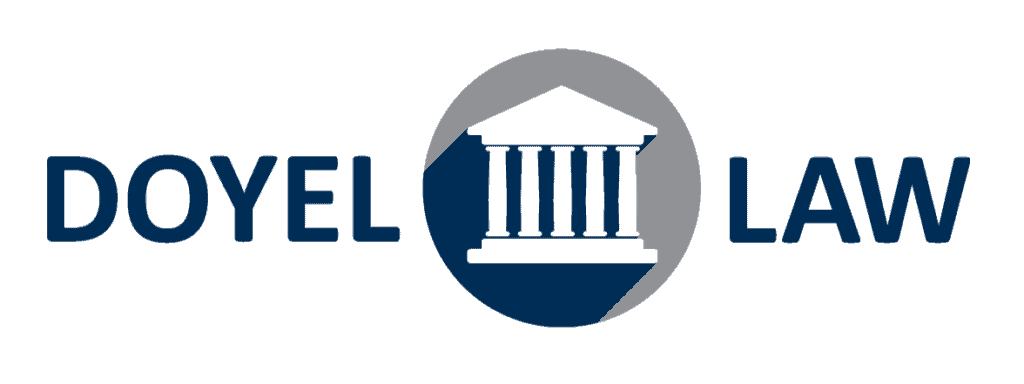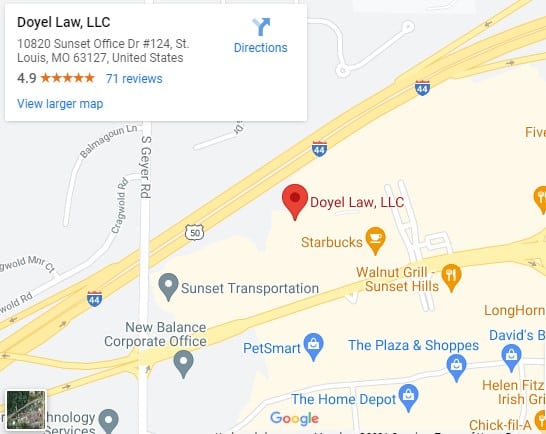Some people believe that filing a bankruptcy petition is an uncomplicated and straightforward process. One of the most important aspects of filing for bankruptcy is identifying your creditors’ names, how much you owe them, how much you make, and your personal assets and properties. This provides your bankruptcy trustee with information about your financial situation, allowing them to handle your bankruptcy case appropriately, like identifying if a specific debt is secured or unsecured debt.
In addition to listing your debts, you will need to determine which debts require resolution before payment by marking them as contingent, unliquidated, or disputed. However, some debtors don’t know or cannot understand these legal terms.
Having the assistance of our bankruptcy lawyer at Doyel Law ensures that the information you provide in your petition paperwork is correct. They will assist you in determining under which bankruptcy chapter (chapter 7, 13, and so on) you should file your bankruptcy petition. So if it happens that you are from Sunset Hills, Missouri, then it is preferable to have our bankruptcy lawyer at your side when you appear in bankruptcy court.
If you are considering filing for bankruptcy and are unsure whether your debts or claim are contingent, unliquidated, or disputed, it is best to read this article to understand more.
What is bankruptcy?
Debtors owe money to lenders or creditors and must pay what is owed. However, there may be occasions when debtors will struggle to pay for them to the point where they will need to file a bankruptcy case.
When we talk about bankruptcy, we are referring to a legal action in which a debtor who is insolvent might seek various options to discharge his or her debts.
You can file for bankruptcy in a variety of ways. One of the most prevalent is Chapter 7, in which your assets are sold or liquidated to settle your debt. However, you should be aware that you must meet certain conditions, like passing a means test or taking a credit counseling session, in order to file a bankruptcy case.
What is ‘claim’ in bankruptcy?
Some people decide to file for bankruptcy in order to repay their creditors. This might include liquidating your assets and properties or creating a repayment plan for the debts you owe. The debts you owe are referred to as ‘claims’ in bankruptcy. In addition, a ‘claim’ is defined in the bankruptcy code as ‘a right to payment or a right to an equitable remedy for a failure of performance if the breach gives rise to a right to payment’.
Let’s say, for instance, you have an outstanding balance of $6 000 from a loan you made from a creditor. This means that the creditor will have a $6 000 claim against you.
Is my claim or debt Contingent, Unliquidated, Or Disputed?
Basic claims, like most vehicle and personal loans, are simple to grasp because the amount is pretty obvious. Some claims, however, are more complicated since the total amount of debt is determined by a variety of circumstances. This is when other forms of claims — contingent, unliquidated, or contested – come into play.
-
Contingent claim
This kind of claim can be called a ‘trigger’ claim becauseit requires an event or occurrence in order for the payment of such a claim to happen. Let’s say, for example, you are a co-signer of a loan. When the original debtor died, the debt was passed on to you. This means that you are not accountable for the debt unless the other co-signer fails to pay, and it is this failure to pay that gives rise to the contingent claim. As a result, your debt as a co-signer is conditional on whether the original debtor defaults from debt.
-
Unliquidated claim
When we talk about unliquidated claims, these are debts that are existent, but the amount of such debt is unknown or can not yet be identified. This is best illustrated when there is a pending lawsuit like someone sues you for personal injury. Assume you were in an automobile accident, and the individual who caused your accident sued you in court. Because their medical care is still ongoing, you will not be able to determine the full amount that you must pay for their medical treatment. You won’t know how much you owe until the case is finished. When a bankruptcy case is filed prior to the judgment, the claim is unliquidated; when a judgment amount is decided prior to filing, the claim is liquidated.
-
Disputed claim
To assess whether the claim is disputed, you should ask the question of whether there is an objection to the amount of the debt or the debt itself. If yes, then that is a disputed claim. When a debtor and creditor cannot agree on the exact amount of the debt, or when the debtor does not acknowledge the debt at all, it is referred to as a disputed claim. Suppose that your creditor saw the listed total amount of debt you owed them but objected because he or she felt it was insufficient. In this sense, the objection might be viewed as a disputed claim.
Identifying the different types of bankruptcy claims may appear simple, but despite their basic definitions, there is still uncertainty regarding whether this sort of debt fits under a specific category of claim. That is why when in doubt, you should consult with a bankruptcy attorney to correctly classify your debts.
Why is it important to list and classify my debts?
When you apply for Chapter 7 or Chapter 13 bankruptcy, your attorney will assist you in completing a slew of documents that include terminology like contingent, unliquidated, and disputed. You will need to make a list of and identify all of your debts.
You may be wondering why you have to go to the trouble of identifying a debt that you do not yet own or debts that you disagree with. Listing your debts might be advantageous in the long run. This is because, in cases such as a specific occurrence that caused a particular claim, this might be included in the list of debts that will be discharged if it is listed. If you do not list a claim, it may not be erased (discharged) in your case, even if it is a dischargeable debt.
It does not imply that if you include your contingent, unliquidated, or disputed debt, you are now obligated to pay or will be obligated to pay such debts. Inclusion of a list of all claims merely signifies that anything you owe or may owe is eligible for discharge. In many situations, this implies that you will no longer be liable for these debts.
Assume you have a contingent debt at the time of your bankruptcy petition, but you don’t owe it since the original debtor has not yet defaulted. As a result, when the time comes, this debt can be added to the list of dischargeable debts. This also applies to unliquidated debts if the precise amount cannot be ascertained.
Overall, declaring all of your debts, even if you don’t know the precise amount or it is still being determined by an event, allows you to include them as dischargeable debts after the bankruptcy proceedings are over. If you fail to do so, this means that your creditor may pursue other collection methods against you even after you receive a bankruptcy discharge.
In this vein, if you become insolvent, it is critical that you obtain the assistance of a bankruptcy attorney, who can assist you in identifying the debts that must be disclosed in your bankruptcy petition or filings.
Contact our bankruptcy lawyers to accompany you on your debt-relief journey!
We can offer you bankruptcy and debt solutions suited to your specific situation. We understand how difficult bankruptcy procedures can be, which is why we will provide you with a simple checklist. Once you’ve finished this, we’ll take care of your case.
We at Doley Law, understand that you desire to be free of your financial burden. You want a new start where you are relieved of debt, and when you wake up in the morning, it is not the first thing you have to worry about. Allow our bankruptcy lawyers to assist you in your path toward a debt-free start.



